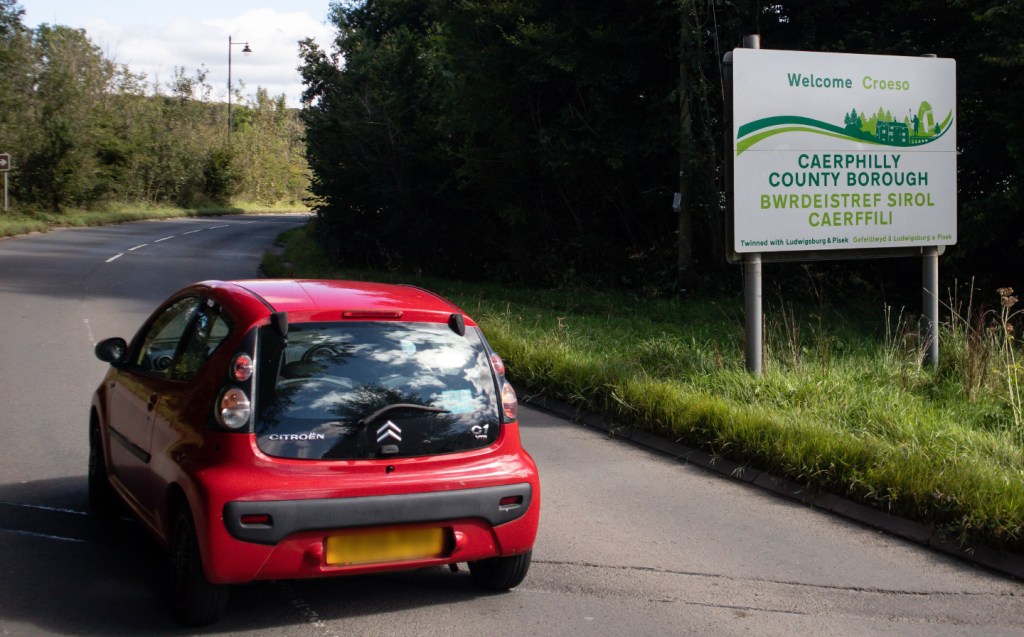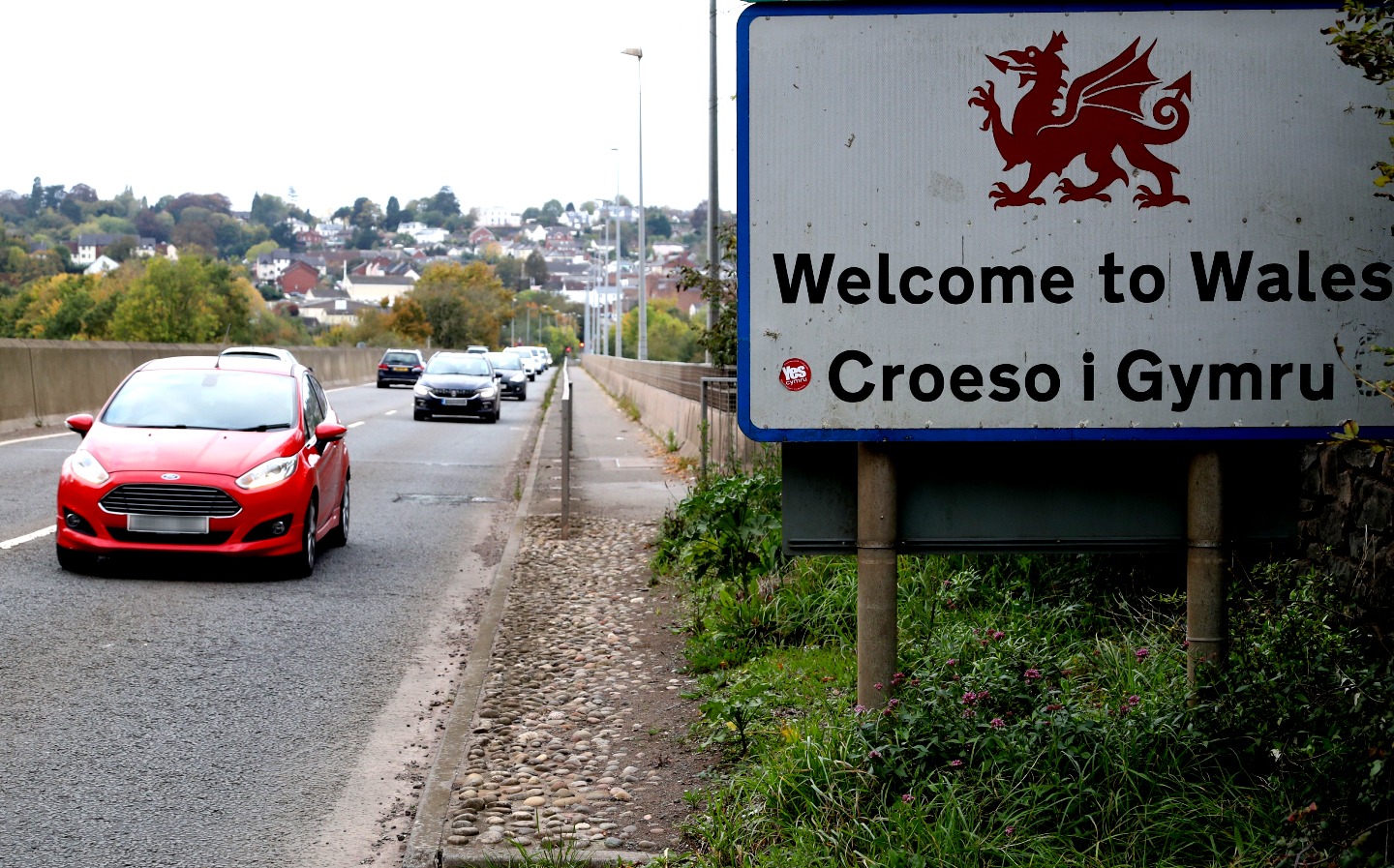Speed limit in Wales lowered to 20mph in built-up areas
Drive Caerphilly
The Welsh parliament has passed legislation that will see the speed limit in built-up areas reduced from 30mph to 20mph from next year.
The decision will reduce the number of pedestrian injuries and deaths caused by road traffic collisions as well as lower noise levels and encourage people to walk or cycle, ministers argued today before the historic vote in the Welsh parliament, the Senedd.
While 20mph speed limits already exist in many cities, towns and villages across Britain, Wales’s legislation makes it the first country in the UK to adopt a nationwide 20mph limit in built-up areas, i.e. on roads with street lighting intervals of less than 200 yards (183m).
About 2.5% of roads in Wales have a limit of 20mph today, but as a result of the new legislation that will rise to about 35% by September next year.
Local authorities will still be able to set higher limits where a 20mph speed limit does not suit local conditions, however.
Data shows that half of the 5,570 injuries from road collisions in Wales happened in 30mph zones, with 40% of 1,131 road deaths and serious injuries in 2018 also occurring in areas with a 30mph limit.
Other statistics have repeatedly demonstrated that a pedestrian being hit by a car at 20mph stands much less chance of being killed or seriously injured than if they had been hit at 30mph — a 2.5% risk at 20mph versus a 20% chance at 30mph, according to some studies. Stopping distances are halved, too, it is claimed.

The Welsh government believes that improved road safety and a reduction in average speeds could result in a £58m saving over 30 years because of reduced emergency service demand and subsequent hospital treatment.
“We know that 20mph zones reduce speed of traffic, reduce accidents — particularly accidents to children,” First Minister Mark Drakeford told the BBC. “We want to see that become the default position right across Wales.”
Road safety campaigner, Rod King, head of the group 20’s Plenty for Us, said on Twitter that it was good to see Wales taking a lead on the issue, adding that “members of the Senedd may never meet the people whose lives are saved by their decision, but they will be there.”
Fierce debate in the Senedd — and elsewhere
The law was passed by 39 votes to 15 in the Welsh parliament on Tuesday evening but only after a heated debate. While the legislation was backed by both Plaid Cymru and Labour, and has received warm reception from road safety advocates, it still has its opponents, including the Wales Conservatives who described the blanket rollout as “ludicrous”.
Natasha Asghar, the shadow transport minister, said: “With a price tag of more than £32 million, is this really money well spent at a time when the Labour government should be focused on tackling the big issues at hand, such as the cost of living?”
Sam Rowlands, a Conservative member of the Senedd, said that locals were “extremely frustrated” at a 20mph pilot scheme in the town.
“They are quite rightly very concerned as they believe that pollution is increasing because cars have to drive in a lower gear and wait longer at traffic lights, there have also been more accidents and the cost of the scheme is thought to be in the region of £33m across Wales, which would be better spent on more teachers, doctors and nurses.”
Opponents also point out that following a public consultation by the government, more people came out against the proposed 20mph national speed limit than spoke up in its favour.
A local councillor for Buckley, Adie Drury, one of the most outspoken and trenchant critics of the plan, described the proposals as “a non-democratic whitewash” and launched a petition that has, thus far, attracted more than 12,500 signatures.
“The community has no problem with a 20mph limit where it’s necessary and where it’s safe, like outside schools, health centres in housing estates and in heavily pedestrianised areas,” Drury told the BBC.
“I was raised on a housing estate and played football in the road when I was a child and it’s good to invite the community into the road-space — but it should be where it is appropriate.
“You wouldn’t want your child playing football in an arterial road so why is the arterial road being made 20mph?”
And RAC road safety spokesman Simon Williams believes many drivers will ignore the lower limits.
“Research by the RAC suggests compliance with 20mph speed limits is quite poor, with an increasing number of drivers believing the limit is inappropriate for the road,” he said.
“Rather than setting a default 20mph limit on all restricted roads it would be better to target areas where they are most needed, for example on residential roads or in areas where there is high footfall, as opposed to main ‘arterial’ roads where there are few pedestrians.”
Will a UK-wide 20mph rollout follow?
Following Wales’ introduction of a 20mph urban speed limit, it is expected that other parts of the UK may follow suit, with Scotland planning to introduce similar legislation by 2024 or 2025. It isn’t clear yet, however, if England will do likewise, though the safety group 20’s Plenty for Us suggests that it may be on the cards.

“We understand that the DfT is looking at the Welsh 20mph implementation with much interest,” said Rod King in a blog post.
“Many councils in England are requesting that the UK government should follow Wales and take the same approach by setting a national 20mph limit. It is understood that the outcome of the Welsh 20mph implementation could well influence a decision on a 20mph national limit for England.”
Related articles
- After reading about the 20mph speed limit in Wales, you might be interested to know if you can be fined for driving 1mph over the speed limit
- According to the WWF, the public wants a 60mph motorway speed limit
- What are the drink drive limits in the UK?
Latest articles
- Porsche 911 Carrera S 2025 review: Harder, better and faster – but is it the best 911?
- F1 2025 calendar and race reports: The new Formula One season as it happens
- Seven great automotive events to visit this summer, from F1 to art and champagne
- Watch new Porsche 911 GT3 smash Nürburgring record for manual cars
- Skoda Elroq 2025 review: Czech carmaker can’t seem to miss with its electric family cars
- Five best electric cars to buy in 2025
- Should I buy a diesel car in 2025?
- Zeekr 7X AWD 2025 review: A fast, spacious and high tech premium SUV — but someone call the chassis chief
- Denza Z9GT 2025 review: Flawed but sleek 1,062bhp shooting brake from BYD’s luxury arm














